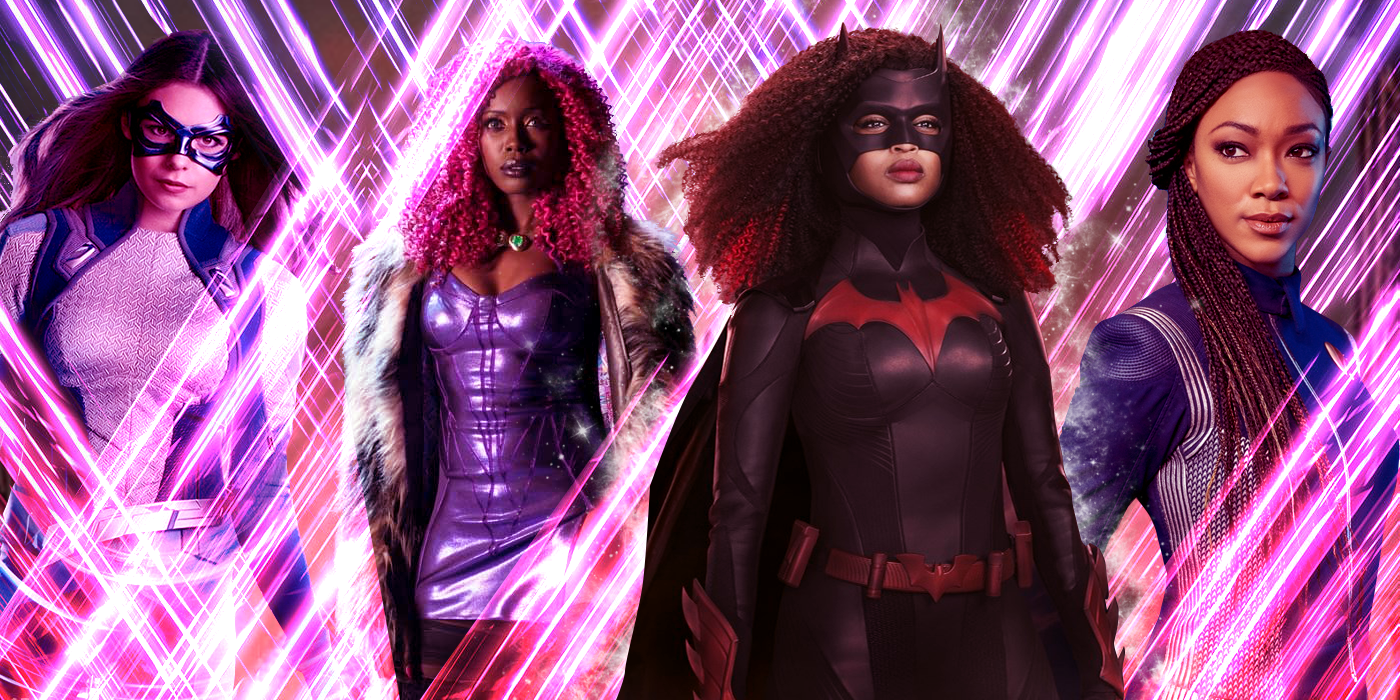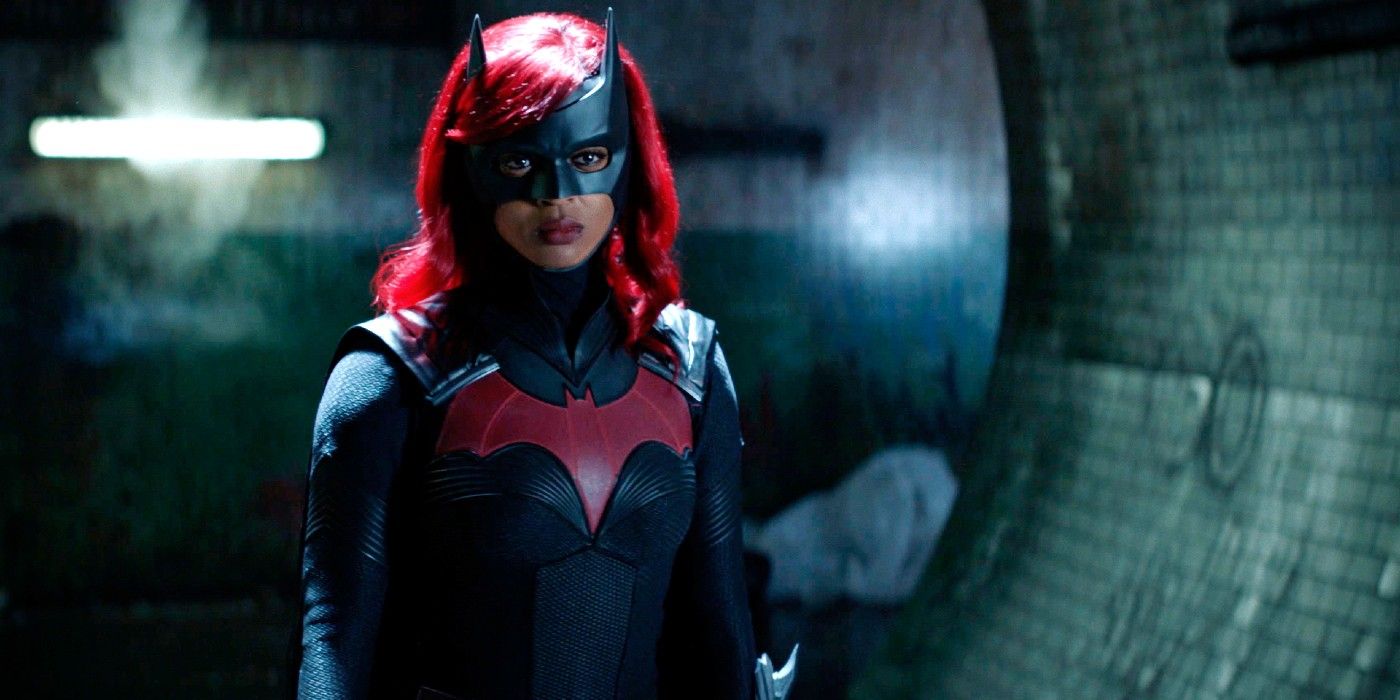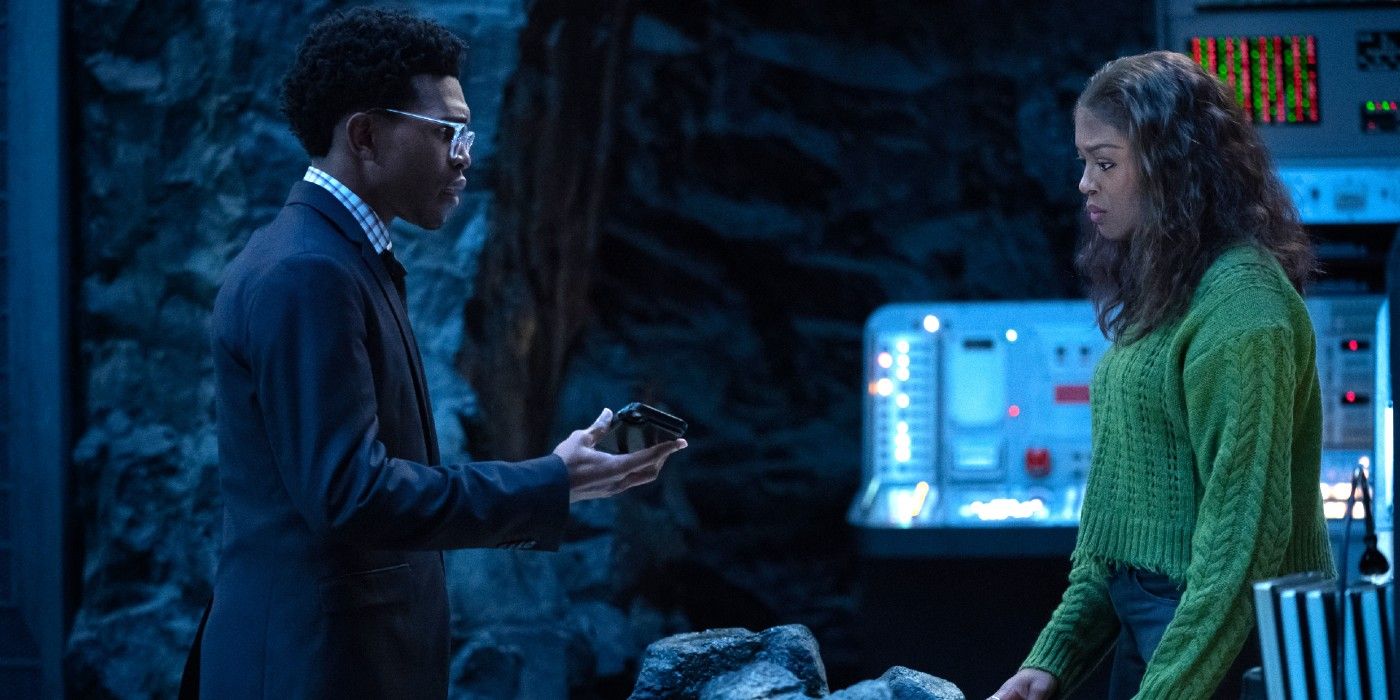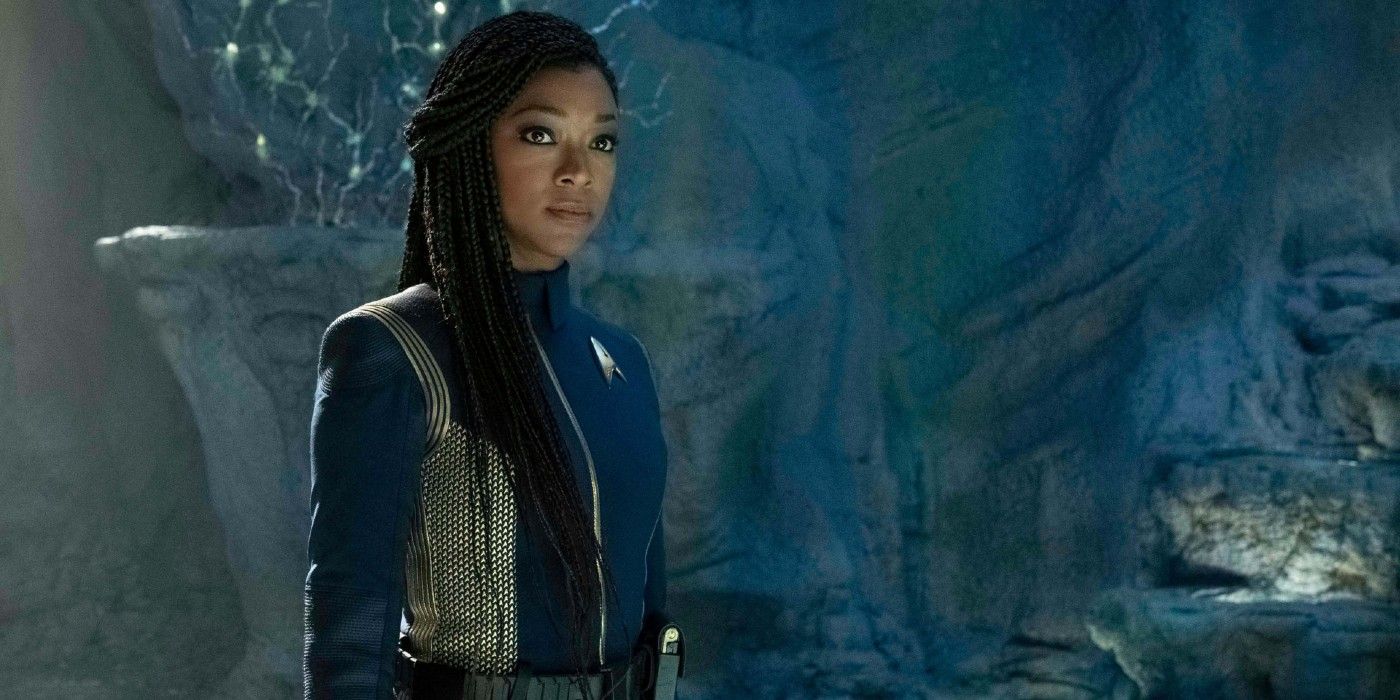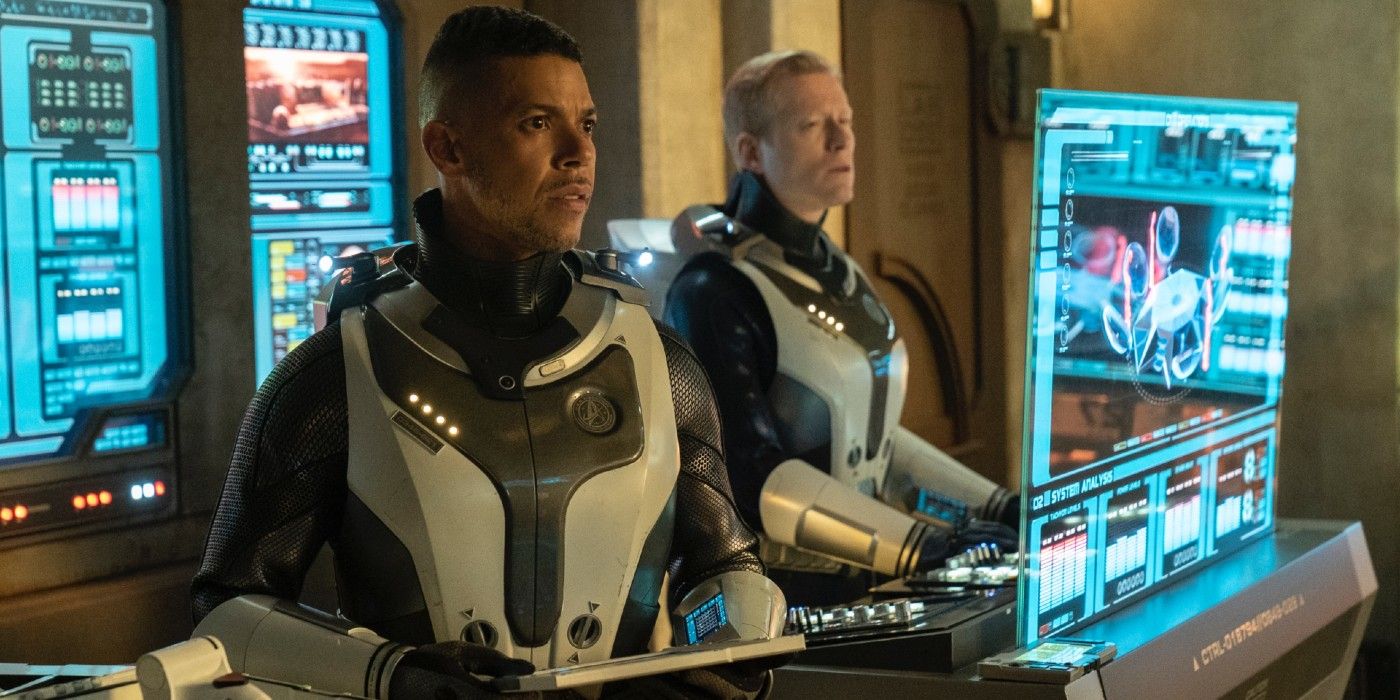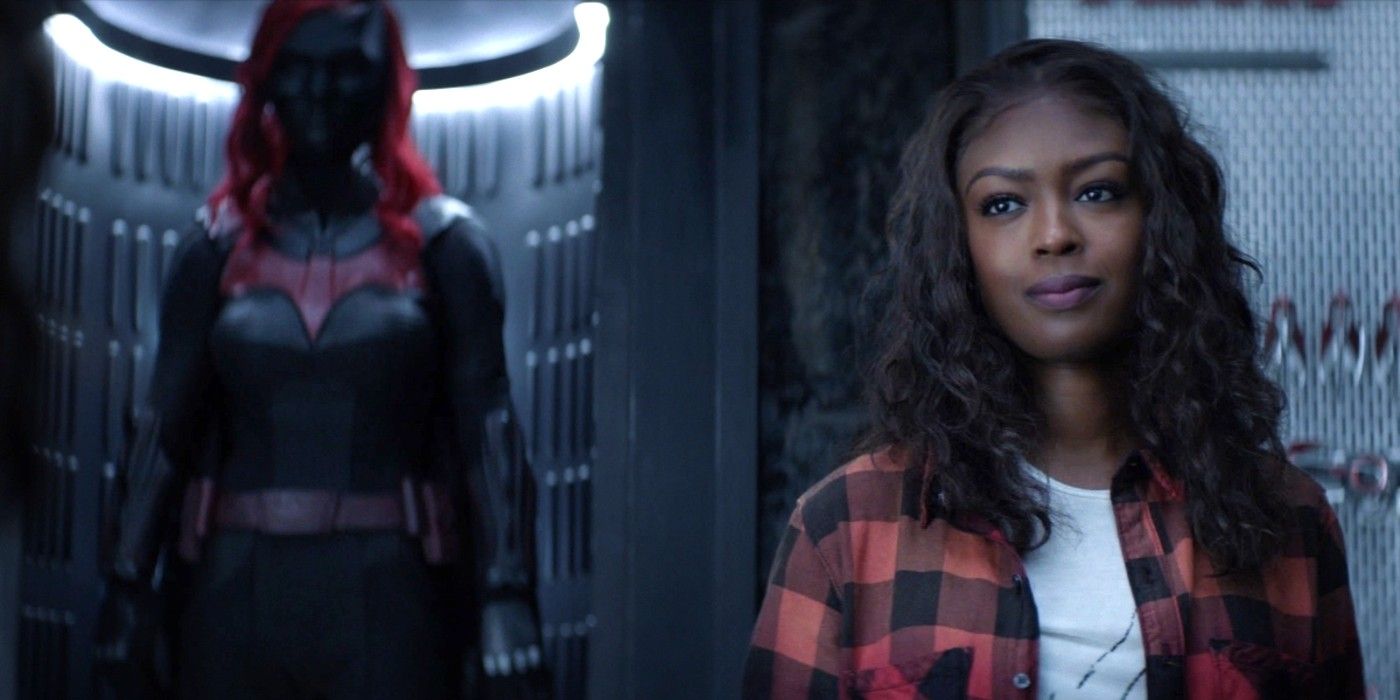Every time you hear of a show being rebooted or a character being recast, fans fear that the property they love will be ruined forever. But that’s not necessarily the case. When Ruby Rose announced her departure from The CW’s Batwoman, speculation ran rife about how the showrunners would handle the change in their lead character. Showrunner Caroline Dries and her team decided to keep Rose’s legacy as Kate Kane intact, and took a new approach to the Scarlet Knight — the mantle would pass on to Ryan Wilder, a Black protagonist, played by Javicia Leslie.
Kate Kane has since been recast, with Krypton actress Wallis Day taking on the character. However, reports have emphasized that Leslie will remain the show’s lead and carry on as Batwoman, proving that the showrunners have put their faith in their new Batwoman. Ryan Wilder is no placeholder hero for Kate Kane.
Now that we’ve seen Leslie’s debut as Gotham City’s new protector, we can see the appeal of challenging the status quo. She is the first Black actor to play Batwoman, and the first Black bisexual woman to headline a superhero show. But she isn’t alone in changing the entertainment landscape. Every Star Wars property has added more diversity to the universe’s roster; we now have a Latino actor leading The Mandalorian, Boba Fett was successfully recast with Temuera Morrison, and the live-action Ahsoka Tano is played by Latina actress Rosario Dawson.
The success of these changes isn’t new, but they remain rare. The Battlestar Galactica reboot coasted on the charisma of its gender-bent Starbuck (played by Katee Sackhoff), and of the show’s protagonist, Admiral Adama (Edward James Olmos). One Day at a Time was rebooted with a Cuban-American family at its center, highlighting the everyday strains of being Latinx and an immigrant in today’s America. Even The CW’s Walker reboot is diving headfirst into race relations in America, rather than just being a punch-fest.
But let’s examine why decisions like Javicia Leslie’s casting as Ryan Wilder are a step in the right direction. As an original character, Ryan is free of the constraints of the source material. She is allowed to be the opposite of Kate Kane in many ways. Where Kate came from wealth and had a family to support her, Ryan was introduced as an unhoused, unemployed, and isolated person. The two characters have been written to approach the struggles of Gotham from different viewpoints — Kate’s arc in the first season saw her take on the mantle of Batwoman only after finding out her cousin, Bruce Wayne, was Batman. Kate was further prompted to take on the role when a new threat to Gotham needed her personal attention.
By contrast, when Ryan was introduced in Batgirl #50, all she could do was rail at one of Kate’s peers, Barbara Gordon, to pressure politicians to support the helpless. In the Batwoman Season 2 premiere, Ryan finds the Batsuit and dons it to right the wrongs of Gotham. She saves those who are forgotten or neglected by the system, people who look like her and are stuck in a similar situation.
Kate’s arc through the first season focused on her return to Gotham to find her place in the world. She decided to do good by setting up a shelter for the queer community, so that they would find a home when they had none. On the urging of one of her girlfriends, Kate bought up an entire stretch of houses so people wouldn’t be evicted. Ryan, on the other hand, went through the foster system, was falsely accused of a crime, and spent 18 months in jail. The moment she seemed to be getting her life back in order in an apartment she was going to share with her foster mother, the Wonderland gang came in and wrecked that plan. With no support system behind her, Ryan had nowhere to go. She was unable to get a job because of her criminal record, which meant she couldn’t afford a home for herself, which in turn meant she couldn’t apply for a job. This vicious cycle is too true for large swathes of the population, especially in the United States, which has the additional issue of systemic bias against marginalized groups that effectively traps them in a cycle of poverty. Had the Batwoman showrunners simply recast Kate Kane at the start of Season 2, we would have had the same hero with a different face, but the challenges she faced would not have reflected those of a still largely underrepresented portion of the population.
Pop culture is becoming more diverse, and Leslie is one of a few people making a change in the superhero landscape. But progress remains slow. While we celebrate the addition of Nicole Maines as the first transgender actor playing a transgender superhero on Supergirl, problematic and regressive portrayals of trans characters continue to be peddled on screen. Unfortunately, even if progress is made by showrunners, some toxic fans of beloved franchises and characters will attack artists who purportedly don’t fit their idea of what a character should look like. Candace Patton and Anna Diop, who play Iris West on The Flash and Starfire on Titans respectively, have both faced racist attacks on social media for stepping into the roles of their characters.
Outside of the superhero realm, Star Trek: Discovery continues to push the boundaries of representation, but it’s also on the receiving end of a lot of hate from so-called fans for pushing a "diversity agenda." But that hasn’t stopped them from casting a Black woman as Spock’s foster sister and adding to the gender and sexuality spectrum of characters in the universe. They have the first gay couple (played by out actors Wilson Cruz and Anthony Rapp) in their main cast, while non-binary actor Blu del Barrio and transgender actor Ian Alexander were added in the third season.
Given Star Trek’s utopian future, the lack of characters with disabilities has always been surprising. But the show is taking steps in the right direction. Kenneth Mitchell, who has appeared as a guest star on the show, was diagnosed with ALS following the second installment. In the final two episodes of Season 3, he played Aurelio, a character with a disability. Similarly, Titans brought in disability activist and actor Savannah Welch to play Commissioner Barbara Gordon, a character with a disability, in Season 3.
But the portrayal of characters with disabilities remains one of the major hurdles that pop culture needs to clear. Far too often, disability is invisible, and if it appears, the disability is either magically cured (The Witcher being a recent example), or it is magical itself. Think about how characters coded as being on the autism spectrum are written, and which actors are chosen to play them (Rain Man, Sherlock, Locke & Key, Music). The disabled community is often represented in stereotypical ways, and it is still rare for actors with disabilities to be cast in roles about their community.
Hollywood also needs to address sizeism in its films and entertainment. It’s bad enough that plus-size actors are excluded from the majority of roles, but it’s often worse when they’re included. Half the properties mentioned in this article are guilty of making "fat jokes," or jokes that ridicule characters based on their weight. When The Flash introduced Ralph Dibney/Elastic Man, he was carrying around a little extra girth. The moment he gained his powers, Ralph took a dig at other portly characters on the show. That doesn’t sound like something a hero would do. (Speaking of Ralph Dibney, the character has since been written out of the show following controversial tweets made by actor Hartley Sawyer. Since Ralph can shapeshift into anyone, this could be an opportunity to cast an actor from a different community. Perhaps a plus-size actor?)
The entertainment we consume is inching towards representing the dynamic world that we live in. And yet we still have quite a way to go. Most people expect properties created by people from marginalized communities to check all the boxes, but the work needs to be a collaborative effort from across the entertainment industry to be truly intersectional. It’s unlikely that the entire season of Batwoman will focus on the systemic issues of Gotham (and in America in general), but there’s no doubt that it will be an undercurrent and a common thread that will run through the show. But hopefully, Ryan Wilder is blazing a path for more inclusive casting in future properties.
This recent quote from Riz Ahmed, the first Pakistani-origin actor to bag a Best Actor nomination at the Academy Awards, sums up the need for the entertainment industry to expand its concept of diversity:
“We should stretch culture so that it’s big enough and wide enough and expansive enough so that there’s space for all of us to find ourselves in it, to feel that we belong and that we’re included, and that we matter. These changes aren’t just something that’s good politically or socially. It’s something which allows stories and storytelling to get back to its original intention, which is to embrace all of us.”
Reboots aren’t going anywhere. When familiar and well-loved properties are given a second go-around, or characters are recast or replaced, an opportunity arises for pop culture to stretch its inclusive wings. Batwoman and Star Trek: Discovery have shown how successfully TV shows and films can adapt their narrative worlds to be more representative. This is a positive start, but only a start. As more reboots are announced, we should expect more representation as well.

